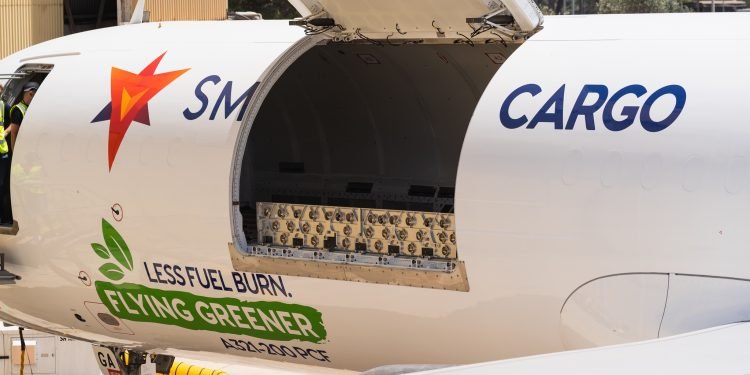By Eva Richardson | The Logistic News | March 28, 2025
Brazil’s Levu Air Cargo, a relatively new entrant in the cargo aviation sector, is now facing a pivotal challenge following the decision by SmartLynx Airlines to phase out its A321 freighter operations by mid-2025. The move could leave Levu temporarily grounded as it prepares to return its sole Airbus A321P2F aircraft to its lessor.
Levu, which only began operations in November 2024, had dry leased the A321 freighter (registration PS-LVU) from SmartLynx and operated on behalf of DHL Express as part of a domestic cargo network across Brazil. The aircraft has since been parked in Manaus since December with no scheduled departure, according to tracking data from Planespotters.
A Brief Lifespan for a Strategic Launch
Levu’s ambitious launch was backed by a €90.5 million investment, as announced by DHL Supply Chain in May last year, aiming to introduce a fleet of four cargo aircraft to serve Brazil’s growing e-commerce and domestic cargo demand. The partnership was viewed as a strategic move to reduce delivery times and improve network resilience within the vast geography of Brazil.
Now, with SmartLynx confirming that it will terminate its lease agreement for the aircraft, and with no other freighters in its fleet, Levu’s flagship freighter is set to be returned to lessor Cross Ocean Partners, as reported by Brazilian publication AEROIN.
“The aircraft is still part of the SmartLynx fleet, however, due to the phase-out of the A321F fleet, SmartLynx will soon exit the lease agreement with the lessor,” a SmartLynx spokesperson confirmed to Air Cargo News.
A Pause or a Pivot?
What remains unclear is how Levu Air Cargo plans to adapt to the change. The airline has not issued any recent public statements about the future of its operations, and requests for comment from Air Cargo News and The Logistic News have gone unanswered at the time of writing.
Despite this, Planespotters data indicates that Levu is scheduled to receive two additional A321P2Fs, though no leasing arrangements or delivery details have been confirmed. It remains uncertain whether these aircraft are part of the original DHL-backed plan or a new strategy to replace the outgoing PS-LVU unit.
Impact on Brazilian Cargo Infrastructure
The development is particularly relevant given Levu’s strategic positioning in Campinas, with additional bases in Recife, Belém, and Manaus—locations crucial to cargo connectivity across Brazil’s vast territory. As of now, PS-LVU remains parked, and the momentum surrounding Levu’s role in domestic air freight appears to be on pause.
For DHL Express, the implications are equally critical. With the original project centered around dedicated freighter capacity in Brazil, the status of its partnership with Levu may now need reevaluation. DHL has yet to provide an update on the project or whether alternative aircraft or operators will be considered.
Conclusion
As SmartLynx steps away from freighter operations entirely, Levu Air Cargo finds itself at a crossroads. With only one aircraft in operation and that aircraft now out of service, the company must move quickly to secure new capacity—or risk a complete halt in operations. For Brazil’s domestic logistics sector, the outcome of this transition will be closely watched, especially given the demand for agile air freight solutions across the country’s challenging terrain.
Stay with The Logistic News for updates as this story develops.























